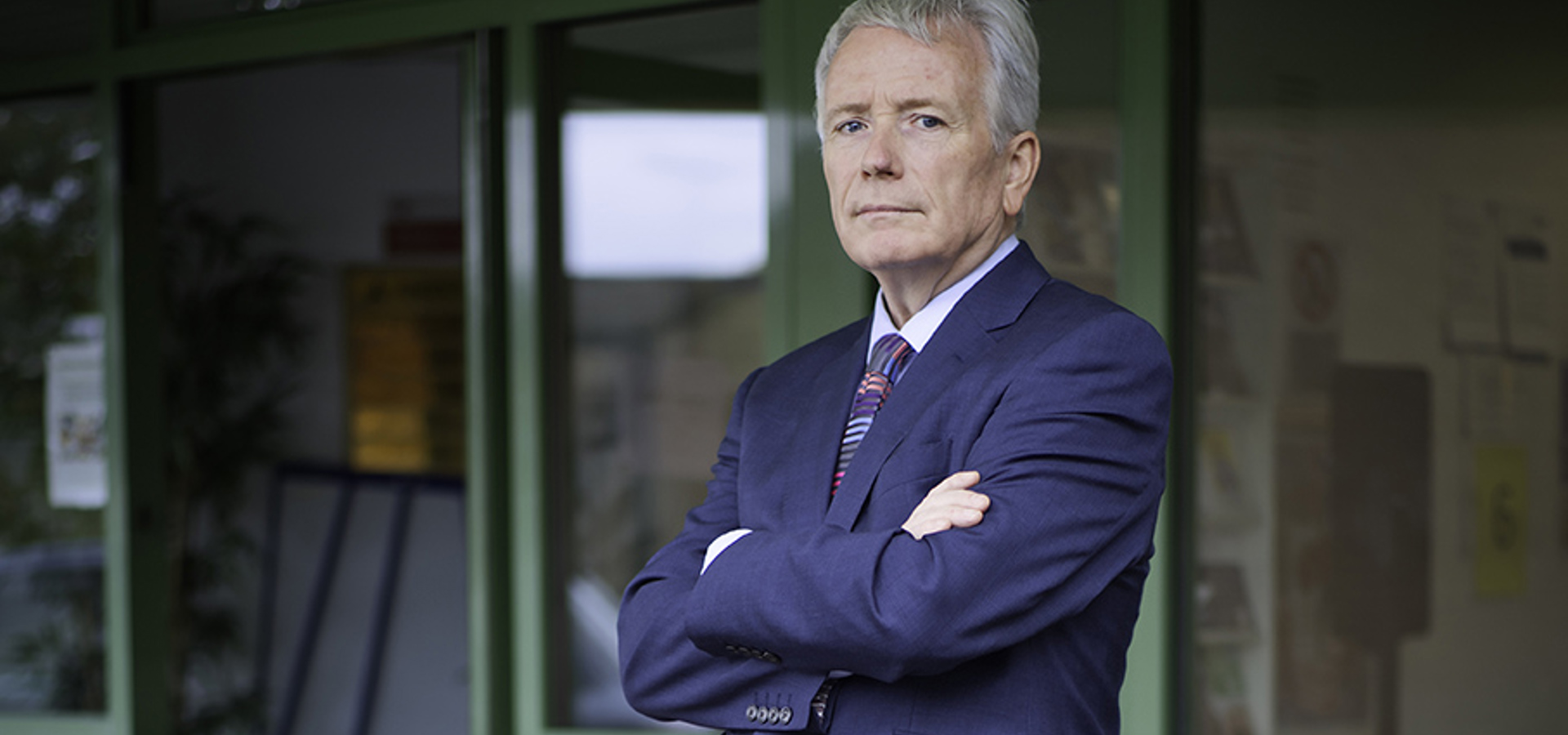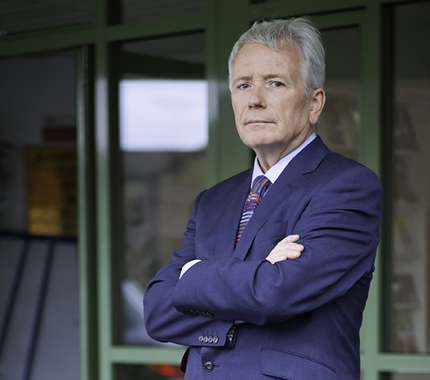Tom Black loves Derry, the Northern Ireland city where he has lived and worked since he was a child.
As we drive towards his practice in the Bogside – an area high in deprivation and redolent with political history – he proudly gestures towards a building which used to house his widowed mother’s clothes shop. As a boy during the Troubles he would be on duty, he says, making sure there were no bombs. ‘There were none on my watch,’ he adds.
The family shop – latterly run by his wife – has changed recently. COVID was hard on retail with so much going online, so now his daughter runs a beautician’s business from the premises; it has flexed to survive.
It’s a similar story at Dr Black’s surgery. From the start of the year, Abbey Medical Practice has moved to a hybrid model, continuing to care for HSC (Health and Social Care service, essentially similar to the NHS) patients on its list as usual, but also seeing private patients after hours.
Patients pay £75 for a 15-minute consultation with one of the practice’s GPs. The doctors themselves are not paid for this extra work – all the money is ploughed into keeping the practice doors open and lights on for its own patients.
No choice
Nobody could sound more surprised by this turn of events than Dr Black himself – private healthcare is not normally the go-to solution for GPs who chose to make a career among deprived communities – but he says the practice had no choice: it was either take this radical step or go bankrupt.
‘To be blunt, the contract was going back in June this year at the latest,’ he says. ‘We were losing thousands of pounds a month – it simply wasn’t sustainable.’
When The Doctor visited Dr Black’s surgery in February, the Northern Ireland Assembly had just started sitting again after a gap of two years. The suspension of devolution has had a huge effect on healthcare in Northern Ireland, and many, Dr Black among them, fear the restoration of government has happened too late to save public services. General practice is no exception.
The lack of a health minister has had practical consequences which have hastened the demise of many practices (see box on p9), not least because even the below-inflation 6 per cent financial uplift recommended by the Review Body on Doctors’ and Dentists’ Remuneration had still to be paid, almost a year after it was agreed.
‘To give you an insight into the impact that has had, in my own practice we didn’t get the 6 per cent and we were already overdrawn.
‘We then lost three reception staff in six months – because our pay was lower than Lidl’s. We took a second overdraft from the bank and we gave all our staff an 8 per cent pay rise, because we need someone to answer the phones.
‘At the same time, our heating and lighting costs had doubled in the last 12 months, and our workload is phenomenal, partly because of the huge problem we have with long waiting lists in Northern Ireland. One of the reasons we need this is that the health service has collapsed – we had to do something.’
To be blunt, the contract was going back in June this year at the latestDr Black
The private patients are paying for the convenience of an appointment without waiting, and for extra time – there are no fancy consulting rooms with comfy sofas at the practice.
‘They get a 15-minute appointment – they’re getting the appointment I used to be able to give them 10 years ago,’ he says. ‘You know, I’m really annoyed I’m having to do this, because I never thought I would. But all confidence and hope and trust has gone out of the system.’
Debt relief
Regulations mean they can only offer the service to patients from other practices, not their own, and it remains a small part of the overall workload. Nevertheless, it’s making a financial difference, and the practice is now paying off its debts.
Patients appreciate the private service, says Dr Black, who ends his six-year term as chair of BMA Northern Ireland council this summer. He describes one man, an IT consultant with an upper-respiratory tract infection.
‘It would have cost him an awful lot of work time to sit on the phone, talk to the receptionist, make his case [for an appointment], wait for the GP to call back, then go down for an appointment at the convenience of the practice. He said: “I’m self-employed, I make £85 per hour, and you saw me at 5.30pm – you’ve saved me a fortune today.”’
One of the reasons we need this is that the health service has collapsed – we had to do somethingDr Black
Another typical patient was someone who attended with three or four small problems which were worrying them, but they felt they were not worth ‘bothering their GP’ with. ‘We gradually worked through her non-urgent problems – it did take longer than 15 minutes – but the patient was really delighted.’
Setting up the service has been challenging with many regulatory hurdles to cross, says Dr Black. But patients in his own practice have been very understanding.
‘There have been so many practice closures in Northern Ireland and they worried that we would be next in line.
‘So, I said to them: “I’ll work harder, I’ll maintain your service, and I’ll use this private money to keep the practice going.” They believe me – after 35 years, there’s a relationship of real trust.
‘Extreme pressure’
General practice in Northern Ireland is under extreme pressure, with one in three practices seeking crisis-support services in the last four years, according to a public-services watchdog.
A report from the Northern Ireland Audit Office on access to general practice, published last month, warns extreme pressure continues to build on primary care, with challenges including funding and workforce. Auditor General Dorinnia Carville called for the development of ‘sustainable long-term plans’ to address the situation.
The report shows that, between March 2022 and March 2023, 13 practices either handed back or gave notice to hand back their contracts. The need to attract locums to these practices has led to trusts (who took over five of the contracts) paying rates of up to £1,000 per day.
Workforce issues, including a shortage of GPs, and the failure to roll out multidisciplinary teams are also challenges, as is demand resulting from growing waiting lists in secondary care, the report warns.
BMA Northern Ireland GPs committee chair Alan Stout says the report reiterated and validated what the BMA has been warning about for some time.
‘Escalating workload, workforce and financial pressures, coupled with a failure to tackle these issues with sustainable long-term and properly funded solutions, has brought general practice to the state it is in today.
'This is the latest in a long line of reports published over the past decade which have outlined what needs to happen to save general practice. We can only hope its recommendations do not also fall on deaf ears and that properly funded, long-term, sustainable interventions to save primary care are actioned before it is too late.’
(Published on 24 April)


